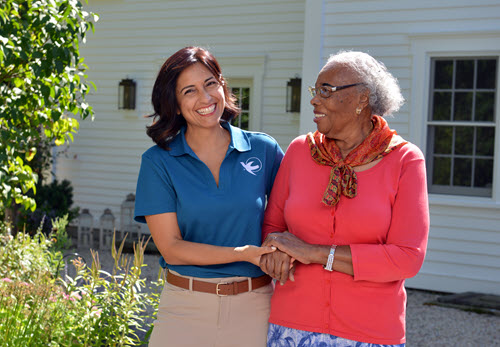
7 Stages of Lewy Body Dementia
Lewy Body Dementia (LBD) is a complex neurodegenerative condition that significantly affects a person's mental abilities, movement, and behavior. Approximately 1.4 million Americans are living with LBD. Understanding the stages of LBD is important for patients, caregivers, and families to prepare for the challenges ahead. This guide provides a comprehensive overview of the seven stages of Lewy Body Dementia, helping you recognize the symptoms and cope with each phase.
Causes and Risk Factors
LBD involves the presence of Lewy bodies, which are abnormal protein deposits in the brain. The exact cause of LBD is still unclear, but several risk factors can increase the likelihood of developing the condition, including:
- Age: The risk of developing LBD increases significantly with age, particularly in individuals over 60.
- Gender: Men are more likely than women to develop LBD.
- Family History: A family history of dementia or related disorders may increase the risk of developing the condition.
- Other Neurological Disorders: Conditions such as Parkinson's disease are closely linked to the development of LBD. In fact, around 75% of people with Parkinson's disease who survive more than 10 years after diagnosis are likely to develop dementia.
LBD affects about 5% of people with a dementia diagnosis, but it is believed to be under-diagnosed and may account for up to 20% of all dementia cases. The incidence rate is 3.5 cases per 100,000 person-years, increasing steeply with age.
The 7 Stages of Lewy Body Dementia Explained
Understanding the Lewy Body Dementia stages can provide valuable insights into the progression of the disease and the necessary care for the affected patient at each stage.
Stage 1: No Cognitive Decline
At this initial stage, patients typically show no noticeable symptoms of cognitive decline. Their daily functioning remains normal. Motor symptoms associated with Parkinson's, such as tremors, muscle stiffness, or slow movements, may not be present yet.
Stage 2: Mild Cognitive Decline
In this stage, patients may start to experience slight memory loss or difficulty concentrating. They may misplace items frequently or have trouble recalling names. Family and friends may notice these changes, but the patient can generally manage daily activities.
Stage 3: Moderate Cognitive Decline
Symptoms become more obvious at this stage, including noticeable memory problems and confusion about time or place. Patients may struggle to plan or organize tasks. At this stage, they may experience behavioral changes, including depression and anxiety, and may require more assistance with daily activities.
Stage 4: Moderate Cognitive Decline
At this point, patients may need significant assistance with daily activities from a team such as Visiting Angels of Western North Carolina. They may struggle with basic tasks, such as managing finances or keeping track of personal hygiene. They may become more confused or frustrated and experience significant mood swings or changes in behavior.
Stage 5: Moderately Severe Cognitive Decline
Patients at this stage require assistance with most daily tasks. They may forget personal details, such as their address or phone number, and may not remember recent events. They may experience hallucinations or delusions, making caregiving more challenging. Fortunately, Visiting Angels of Western North Carolina can help with any stage of LBD.
Stage 6: Severe Cognitive Decline
In this advanced stage, patients no longer respond to their environment and require extensive help with daily activities. They may have difficulty speaking and may withdraw from those around them. Physical symptoms of Parkinson's, such as tremors and stiffness, may also become pronounced at this point.
Stage 7: Very Severe Cognitive Decline
This final stage of LBD is characterized by complete dependence on caregivers for basic needs, such as eating and personal care. Patients may lose the ability to communicate verbally and may need help sitting up or walking. Comfort care becomes the primary focus, and families may need support in coping with the emotional toll of this stage.
Treatment Options for Lewy Body Dementia
While there is no cure for LBD, several treatment options can help manage symptoms and improve patients’ quality of life. These may include:
- Medications: Cholinesterase inhibitors, often used to treat Alzheimer's, may help with cognitive symptoms. Antipsychotics can be used cautiously to manage hallucinations but may have side effects in LBD patients.
- Physical Therapy: Engaging in physical therapy can help maintain mobility and manage motor symptoms associated with Parkinson's disease.
- Occupational Therapy: This therapy focuses on improving daily living skills and helping patients modify their environment to maintain independence.
- Support Groups: Joining support groups for patients and caregivers can provide emotional assistance and practical advice for navigating the challenges of LBD.
Understanding the seven stages of LBD is essential for effective management and care. Recognizing symptoms early and seeking appropriate support can drastically improve the quality of life for individuals with LBD and their families. If you suspect that you or a loved one may be experiencing symptoms of LBD, consider reaching out to a healthcare professional at Visiting Angels of Western North Carolina for a comprehensive evaluation and guidance.
Need Additional Support for the 7 Stages of Lewy Body Dementia?
If you or a loved one needs additional support with LBD or another condition, Visiting Angels is here to help. We specialize in providing compassionate care tailored to your unique needs. Our services include specialized dementia care, companion care, and more for patients across Asheville, Hendersonville, Black Mountain, Weaverville, Waynesville, and surrounding areas. Contact us today to learn more about our home care services and how we can assist you and your family during this time. Your peace of mind is our priority.
